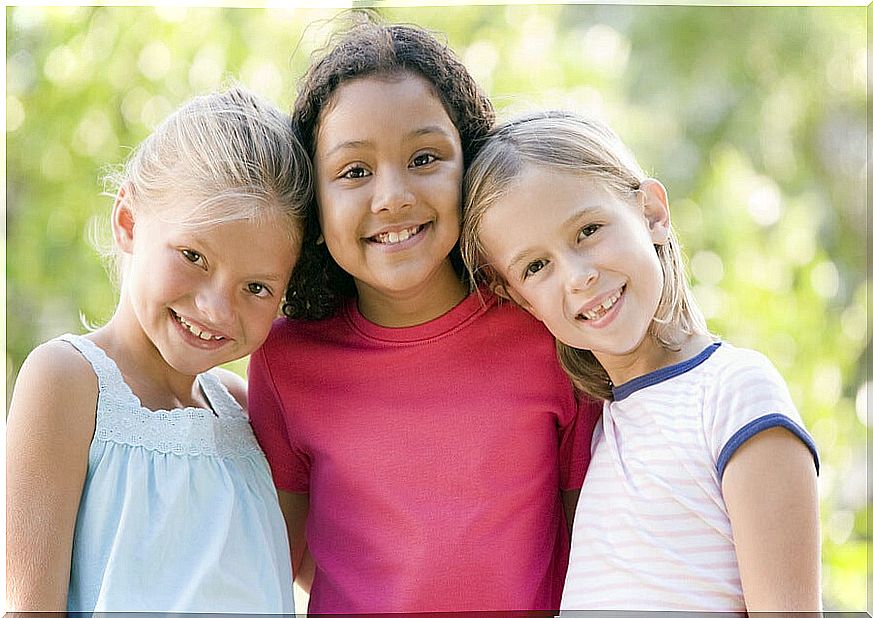The Importance Of Teaching Children Not To Judge

Who does not enjoy a kind and respectful child? All parents want their children to be admired for how polite, charming, tolerant, and respectful they can be. However, for them to develop these qualities is an arduous task and carries with it a great responsibility. Know the importance of teaching children not to judge to develop a tolerant adult.
Importance of teaching children not to judge
Everyone, at any time in life, has suffered from the judgment of other people. Although it is a common occurrence, you can make a difference by teaching children not to judge and stop that kind of attitude.
Otherwise, this can generate negative influences both for the person being tried and for the person making the judgments. In addition, it does not produce anything useful, because everyone is wrong.
Teaching children to cultivate these attitudes from an early age can help them forget about prejudices. It also teaches them to learn to understand the circumstances that lead others to act the way they do. Best of all, you can help them feel good about themselves and accept themselves for who they are.
5 points to teach children not to judge
A large number of children have come with tears in their eyes from school because they have suffered the mockery of their peers. This is because the little ones are bombarded by information that tells them that popularity is best and that whatever it takes to get it must be done. Breaking down this trend is possible if the following recommendations are put into practice.
1. Lead by example
The first step in teaching children not to judge is when you start to stop judging others yourself. Young children learn most things through what they see in their parents.

To do this, you must carry out a self-examination and determine if you have a tolerant and respectful attitude towards them and towards other people. If you promote these qualities, they will surely be encouraged to follow in your footsteps.
2. Explain diversity and respect
Helping the little ones to be tolerant involves clearly explaining what acceptance is. To do this, you need to show them the differences in colors, sizes, and shapes.
Although they are different, they do not have to be bad. Ideally, you should take examples from reality such as a classmate of another nationality or comiquitas, among others.
As for respect, explain when you feel bad about being teased by a partner, that this attitude is disrespectful. You can ask him how he feels and tell them how other people feel when he is judgmental and disrespectful. Not only will you show the ways to be respectful, but you will learn empathy.
3. Reading that encourages tolerance
Reading that fosters values, including tolerance, is an excellent teaching method. To do this, you can use the following stories:
- When the crows were colored
- Two monsters
- Children don’t want war
In them, values such as peace, solidarity and tolerance are explained in an animated and fun way.
4. Corrects negative attitudes
In addition to explaining to the little ones everything related to respect and tolerance, you must observe that they apply what they learn. If you notice that he is still showing intolerant attitudes toward others, correct the behavior immediately. Reinforce the importance of tolerance and respect at all times and make sure they have a healthy self-esteem.

5. Teach them to stand up for what they think without arguing or offending
Being tolerant does not imply accepting everything and violating your own beliefs. Therefore, when having their arguments, children can overdo the debate and fall into disrespect when trying to present them.
The idea is that they learn to listen and expose their thoughts healthily, without attacking. To make this learning enjoyable, ask them to explain what they think of a story without being rude or disrespectful.
In short, teaching children not to judge will make them feel happy with themselves and have healthy self-esteem. Also, preventing them from adopting current trends of dominance and popularity will help them grow in values to be kind adults. Without a doubt, the effort will be rewarded.









